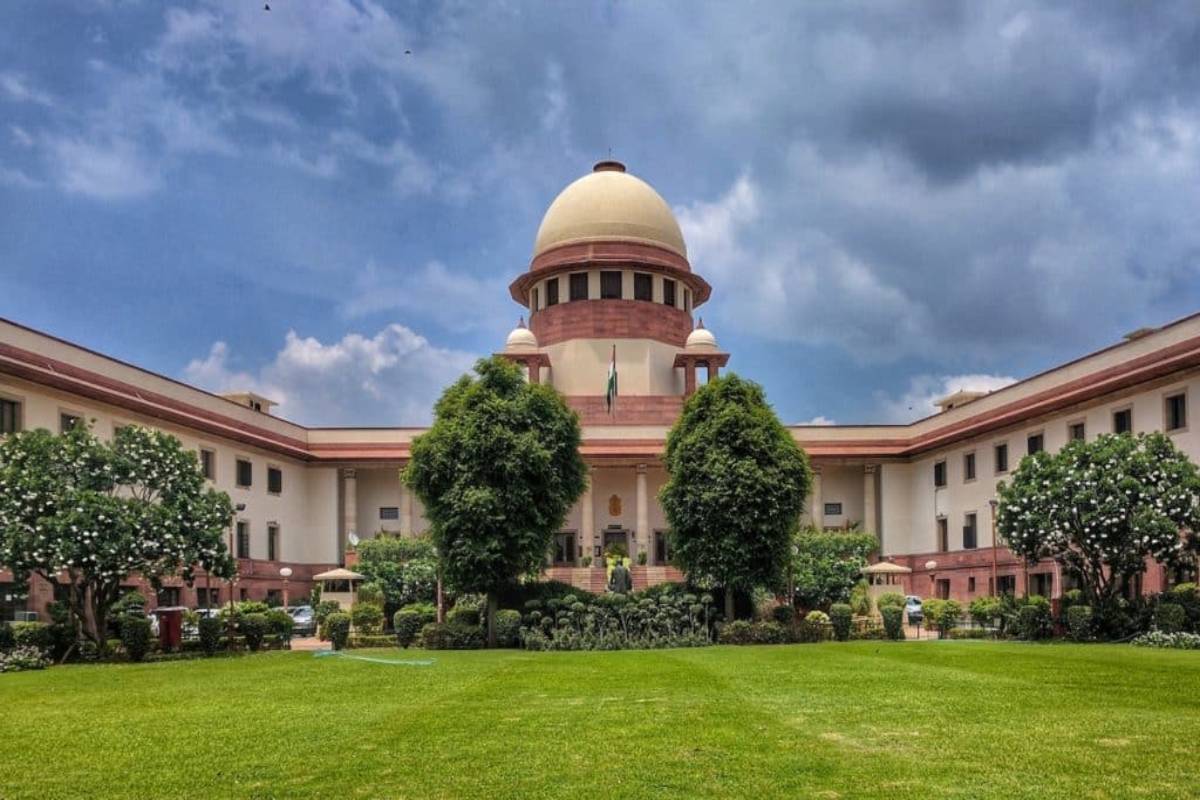SC seeks number of FIRs registered in instant triple talaq cases
Triple talaq ceased to exist on August 22, 2017, when the Supreme Court declared it void.
The apex court’s verdict came on a question whether public servants can be prosecuted for bribery, if bribe givers fail to record their statements or turn hostile.

[File Photo]
Noting that corruption has taken a gigantic proportion affecting the governance, the Supreme Court constitution bench, on Thursday, said that in the absence of a direct evidence of demand and acceptance of bribe, a public servant can also be convicted under the Prevention of Corruption Act based on circumstantial evidence.
Holding that the court should not take lenient approach against the corrupt officials, a five-judge Constitution bench of Justice S.Abdul Nazeer, Justice B.R. Gavai, Justice A.S. Bopanna, Justice V. Ramasubramanian and Justice B V Nagarathna said that corrupt officials must be booked and convicted as their continuation in administrative set-up has a demoralising effect on the honest officers.
Advertisement
The top court said that even if the direct evidence of the complainant is not available, owing to death of the complainant or other reasons, there can be conviction of the public servant under the Prevention of Corruption Act based on the circumstantial evidence.
Advertisement
The constitution bench stated, “This (allegation of corruption) can be proved either by direct evidence in the nature of oral evidence or documentary evidence. Further, the fact in issue, namely the proof of demand and acceptance of illegal gratification, can also be proved by circumstantial evidence in the absence of direct oral or documentary evidence.”
Blocking the ways and machinations that can be taken recourse to by a public servant, accused of demanding and accepting gratification, to escape prosecution under the Prevention of Corruption Act, the constitution bench said that the trial would not automatically abate nor can result in an acquittal of a public servant just because the complainant dies or turns hostile or doesn’t take the stand and held that a case can still be proved with other evidence or testimonies.
The Constitution bench’s verdict came on a question whether public servants can be prosecuted for bribery, if bribe givers fail to record their statements or turn hostile.
The other issue before the constitution bench was whether on the death of a complainant or non-appearance of complainants or the complainant turning hostile will impact pending cases against the public servant under the Prevention of Corruption Act.
Another issue referred to the constitution bench was whether in such a scenario it will be for the prosecution to establish guilt of a public servant using other evidence.
Under the existing legal regime, a public servant can be convicted if the allegations of demanding gratification are established when the element of demand and acceptance of bribe is proved.
In February 2019, a three-judge bench had referred the matter to the constitution bench citing an inconsistency in an earlier top court decision of 2015 where the court had said that public servants ought to be acquitted if the primary evidence was lacking against them. The top court had then said that the direct proof of demand may not be available if the complainant is dead or could not be examined, turned hostile, or was not available for other reasons.
The Central government had told the constitution bench that the court has a perfect opportunity to clarify its 2015 judgment to say that lack of direct evidence or primary evidence will not result in automatic acquittal. Telling the constitution bench on the need for a stringent anti-corruption law, describing it as the “need of the hour”, the Centre had referred to several cases where the accused were set free on the basis of the 2015 verdict.
Advertisement